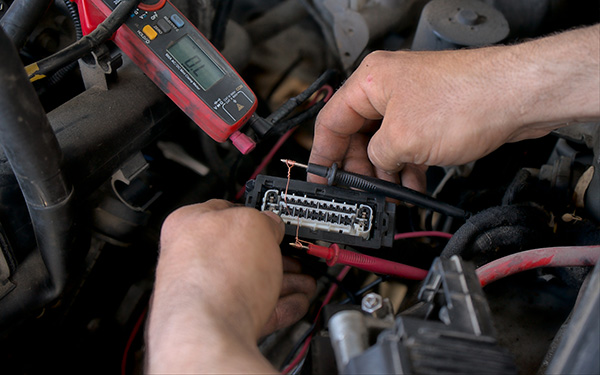
There’s nothing more frustrating than getting into your car, turning the key, and nothing happens. Or maybe your dashboard lights flicker, your radio dies, or your power windows stop responding. Electrical issues in a car can be confusing and annoying. But before you panic, you might be able to troubleshoot some of these issues yourself. With a little patience and some basic knowledge, identifying the root cause of an electrical problem in your vehicle could save you time and money. So, what should you look for when dealing with car electrical issues? Let’s break it down.
Check the Battery First
When your car won’t start, your first instinct might be to think something major is wrong. But more often than not, the culprit behind most electrical issues is the car’s battery. A car battery supplies power to the electrical components in your vehicle, and if it’s drained, corroded, or near the end of its lifespan, things can start going haywire.
Start by checking the battery’s voltage with a multimeter. A fully charged car battery should read around 12.6 volts or higher. Anything lower might indicate a weak or dying battery. Corrosion on the battery terminals can also cause electrical problems, so clean them if you notice any buildup. If your car struggles to start, dim lights, or electrical components aren't working, your battery is always a good first place to look.
Examine the Alternator
If the battery checks out, the next stop on your troubleshooting journey is the alternator. The alternator is responsible for keeping the battery charged while the engine is running, as well as powering other electrical systems in your vehicle. A failing alternator could lead to dimming lights, a warning battery light on your dashboard, or even cause your car to stall.
To test the alternator, you can use a multimeter. With the engine running, the alternator should produce between 13.5 and 14.5 volts. Anything below or above that range suggests that the alternator may not be functioning properly. If you notice flickering lights or your car struggles to stay running after starting, it could point to alternator trouble.
Inspect the Fuses and Relays
Fuses play a crucial role in protecting your car’s electrical circuits from overheating and damage. If you notice that a specific function like your headlights, power windows, or radio isn’t working, a blown fuse might be to blame. Checking the fuses is relatively straightforward—most vehicles have a fuse box located either under the hood or inside the car. The fuse box cover often has a diagram showing which fuse controls which system.
Simply pull the fuse associated with the malfunctioning component and examine it. If the metal inside the fuse is broken, it’s blown and needs to be replaced. Just be sure to replace it with a fuse of the same amperage to avoid causing further damage.
Relays are another part of your car's electrical system that can fail, often leading to issues with larger electrical components like the starter or fuel pump. If you’re experiencing intermittent electrical issues, swapping out a faulty relay could be the solution.
Test the Starter
If your car struggles to start, especially if you hear a clicking sound when you turn the key, the starter might be the issue. A malfunctioning starter can cause the engine to crank slowly or not at all. Over time, wear and tear on the starter motor, solenoid, or wiring can lead to a failure in delivering enough electrical power to start the engine.
To troubleshoot the starter, first ensure that your battery and alternator are working correctly. If both are in good condition, yet the car still won’t start, it’s worth testing the starter. This is more complex than other electrical issues and require professional help if you're not comfortable working with this part of your car.
Look for Wiring Issues
Wiring problems are the most challenging electrical issues to diagnose because they can be hidden. A broken wire, poor connection, or even rodent damage to the wiring harness could cause various electrical systems in your car to fail or act erratically.
If your car has intermittent electrical issues—like lights flickering or electronic features working only sometimes—loose or damaged wiring could be to blame. Inspect the wiring around the battery, alternator, and fuse box for any signs of wear or damage. You can also check for exposed wires that may be shorting out. If wiring problems are the issue, you might want to consult one of our professionals for help in fixing them, as they can be complicated to address.
Check the Grounding
A poor ground connection can wreak havoc on your car’s electrical system, leading to a variety of symptoms like flickering lights, malfunctioning dashboard components, or even a dead battery. Cars have multiple grounding points that ensure the electrical current flows properly. Over time, these points can corrode, loosen, or wear out.
To inspect the grounding, check the cables connected to the negative terminal of your battery. These cables should be securely fastened to the engine block or car frame. If they appear loose or corroded, tightening or cleaning them could resolve some electrical issues.
Electrical issues can be tricky, but we’re here to help. Visit Wes Jackson Automotive for a comprehensive electrical system inspection and repairs. Our team is ready to diagnose and fix any vehicle problems.